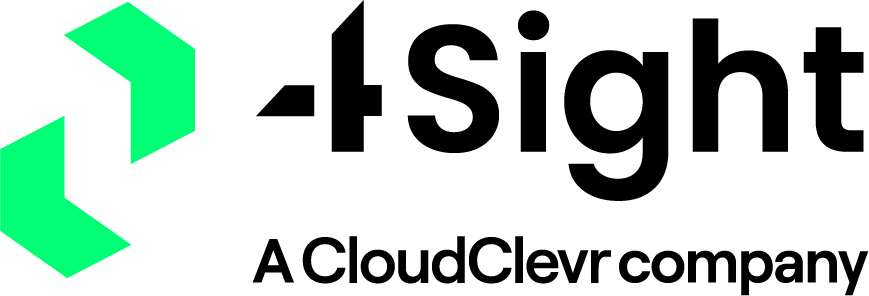Quality Management + Call Recording = Operational Excellence and Risk Reduction

Using the right approach for omnichannel recording along with quality management in the contact center will enable your organization to deliver better service, protect callers and agents and maximize the customer contacts that result in a positive outcome.
Call recording has become a common contact center practice, with compound annual growth across the industry of 22%* into 2022. It has become foundational for most professional organizations but does come with some key considerations and requirements. Compliance with all applicable regulatory requirements is imperative. Not doing so may result in negative consequences, possibly even resulting in legal action.
Call Recording – the what and why
As a normal order of business, most contact center calls, whether inbound or outbound, are recorded.
Who hasn’t heard “This call may be monitored or recorded for quality assurance purposes”…..? This notice is legally required so that all parties are aware that the call is being recorded.
With the latest technology, recordings are processed in real-time and are time-stamped, codified and indexed in order to simplify future analysis or retrieval. Today’s tools can translate speech to text in order to find a specific word or phrase in an audio or video stream, enabling “problem interactions” to be quickly located and evaluated. Leading applications can even search using specific indicators to identify customer sentiment or intonation. This is critical when supervisors do not have the time to listen to a large number of calls. Good search tools allow the manager to zero in on the specific interactions requiring attention, evaluation and further agent coaching.
Calls are linked with the caller’s information and may be stored within the application itself, onsite or elsewhere, including in the Cloud. Call storage durations and even long-term archiving requirements vary and can run from daily retention to an indefinite amount of time. This will be the most important factor when estimating what annual storage (MB, GB or TB’s) needs will be.
Best Practice – for agents, explain the reasons why the company is using these tools and ensure that all understand that it actually makes the contact center a better place to work, as communications are no longer subject to misinterpretation, coaching and help are available, and customer situations can be dealt with as a matter of fact.
Call Monitoring
When your contact center agents engage with customers, you’ll want to make sure they represent the company with the professionalism and customer focus that you expect. Why is this important? In spite of the strong growth in text-based and web-based inquiries as millennials have entered the workforce, as an industry average voice is still 79% of contact center call volume** and productive resolution to calls is key to higher customer satisfaction. Call Monitoring enables supervisors to ‘listen in’ on a call and rate their agents, and even provide coaching in real-time to improve technique and reduce the time to resolve issues. This can quickly have a dramatic impact on overall customer satisfaction.
Just as importantly, when a contentious situation arises, call recording and monitoring can become an impartial witness to protect both parties from unforeseen consequences. In an omni-channel contact center environment, monitoring and recording can be extended to include Email, texting, web chat and social media communications. Critical for success is that consolidated data is indexed for review if required.
Best Practice – proactive monitoring and the identification of key “good” and “bad” communications should be a normal practice for ongoing operational improvements. The use of excellent customer interactions as “Quick Coaching Moments” can be a positive reinforcement for all, especially newer agents.
Respecting Applicable Regulations
When a company operates in a specific region or industry, the applicable regulations can be easy to understand and to respect. But things can get exceedingly complex when the company operates in a highly regulated industry, across multiple regions, and/or internationally. The onus is on the company to understand these regulations and to make sure they are consistently respected.
Key Market Regulatory Requirements
Many industries have specific regulations that require call recording. Organizations should consult with legal counsel to ensure they are respecting any relevant regulations. For high-level guidelines, visit Digital Media Law for some info: http://www.dmlp.org
For all public companies in the United States
Sarbanes-Oxley covers financial reporting and disclosure. Section 404 covers Management Assessment of Internal Controls. The willful destruction of audit records, including correspondence and communications, may result in a fine or imprisonment of up to ten years.
For all companies that accept credit and debit card transactions
Payment Card Industry Data Security Standards (PCI-DSS) is an information security standard for organizations that handle credit and debit card transactions. CVV information must never be recorded.
Some examples of industries with specific requirements:
Health care
Enghouse QMS facilitates HIPAA and MIPPA compliance:
- HIPAA (Health Information Portability & Accountability Act) establishes privacy and security standards that protect electronic and verbal private health information.
- MIPPA (Medicare Improvements for Patients and Providers Act) requires health care marketers to record their conversations to prove that they are not participating in deceptive or high-pressure tactics. All appointments made via telephone must be recorded in order to document these interactions.
Financial
Enghouse QMS helps facilitate compliance with multiple privacy regulations:
- Gramm-Leach-Bliley Act (GLB Act) requires the security and confidentiality of customers’ nonpublic personal information. Enforced by FTC.
- USA PATRIOT Act Section 326 requires firms to maintain records of how they verified customer identities, track transactions and make suspicious activity reports (SARs).
Best Practice – Ongoing review of recording and message storage regulations across all company operating areas should clearly stipulate where attention should be focused in order to ensure no regulations are transgressed.
Preparing for Artificial Intelligence (AI)
AI is rapidly being applied in all areas of the contact center. AI enables the analysis of disparate and diverse data streams across all communication channels and provides extrapolated insights from intelligent analysis of customer interactions. These Insights can then be applied to customer engagements to provide better solutions, more quickly, helping resolve customer issues or de-escalate contentious situations. At the leading edge of available tools, Enghouse AI Insights’ predictive modeling capabilities help to identify and correlate information across channels and other sources of data (such as CRM) enabling organizations to better understand primary customer topics and sentiment. This valuable data can then be used to proactively offer more relevant solutions to customers.
Best Practice – Keeping your contact center, call recording and quality management solution up to date by migrating to the cloud will make it a simple ‘checkbox’ task to immediately activate AI when you want it….without issues….without delays.
Best Practice
For Financial Institutions and other Industries that deal with sensitive data, it is recommended that the data archive be encrypted so that unauthorized access or release into the public domain is harmless, as the data will not be in a usable format. As industry regulations become more restrictive, proactive engagement regarding data security and overall privacy protection will become of primary importance.
If you want to discover more about how we help organsations globally optimise their customer journey, then we welcome the opportunity to speak to you! Just get in touch with one of our Communications Specialists at 020 3668 0444, or fill out the contact form and we will contact you!
This article was first published by Enghouse Interactive.
*Zion Market Research 2016
** CFI Group – 2018 Contact Center Satisfaction Index



